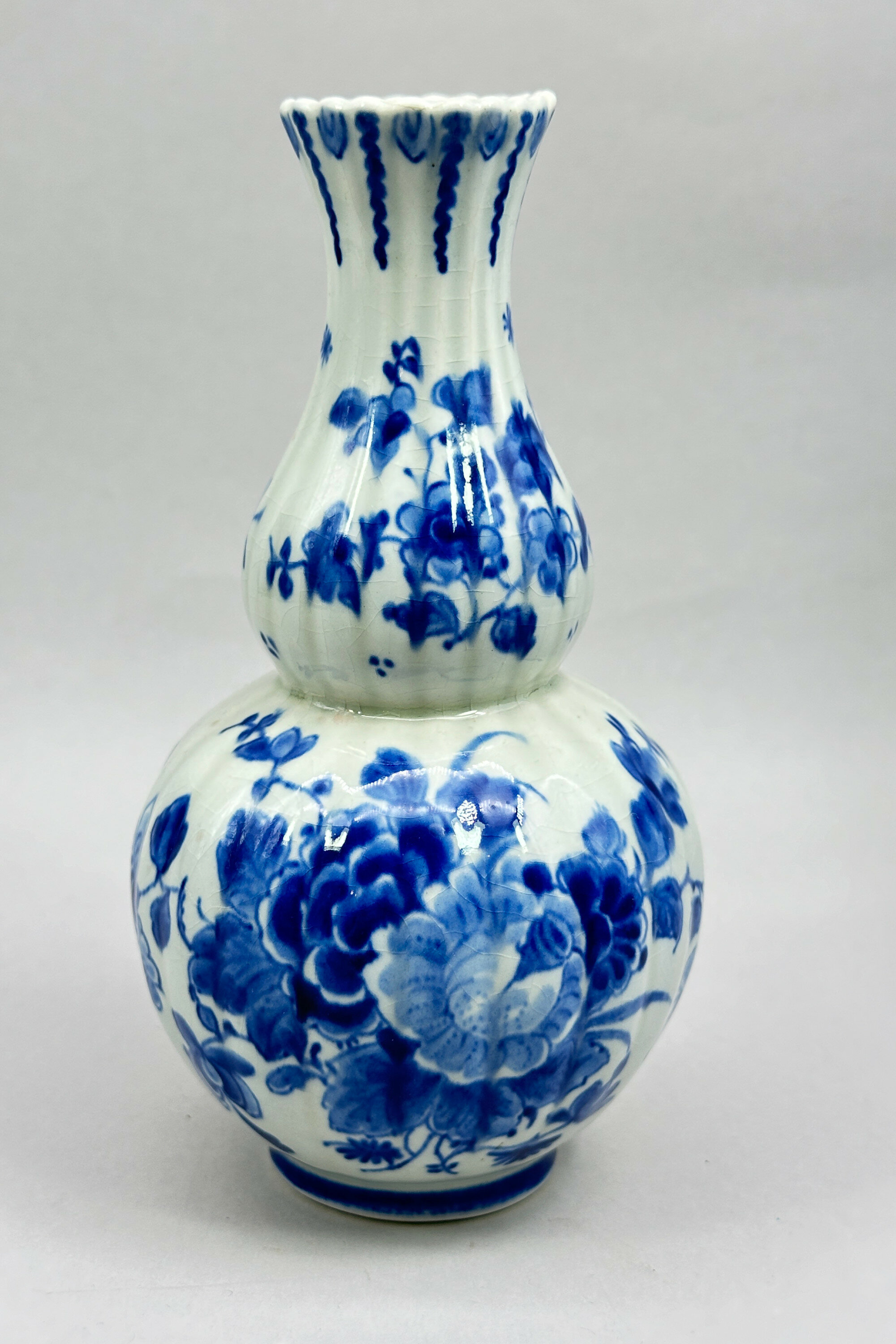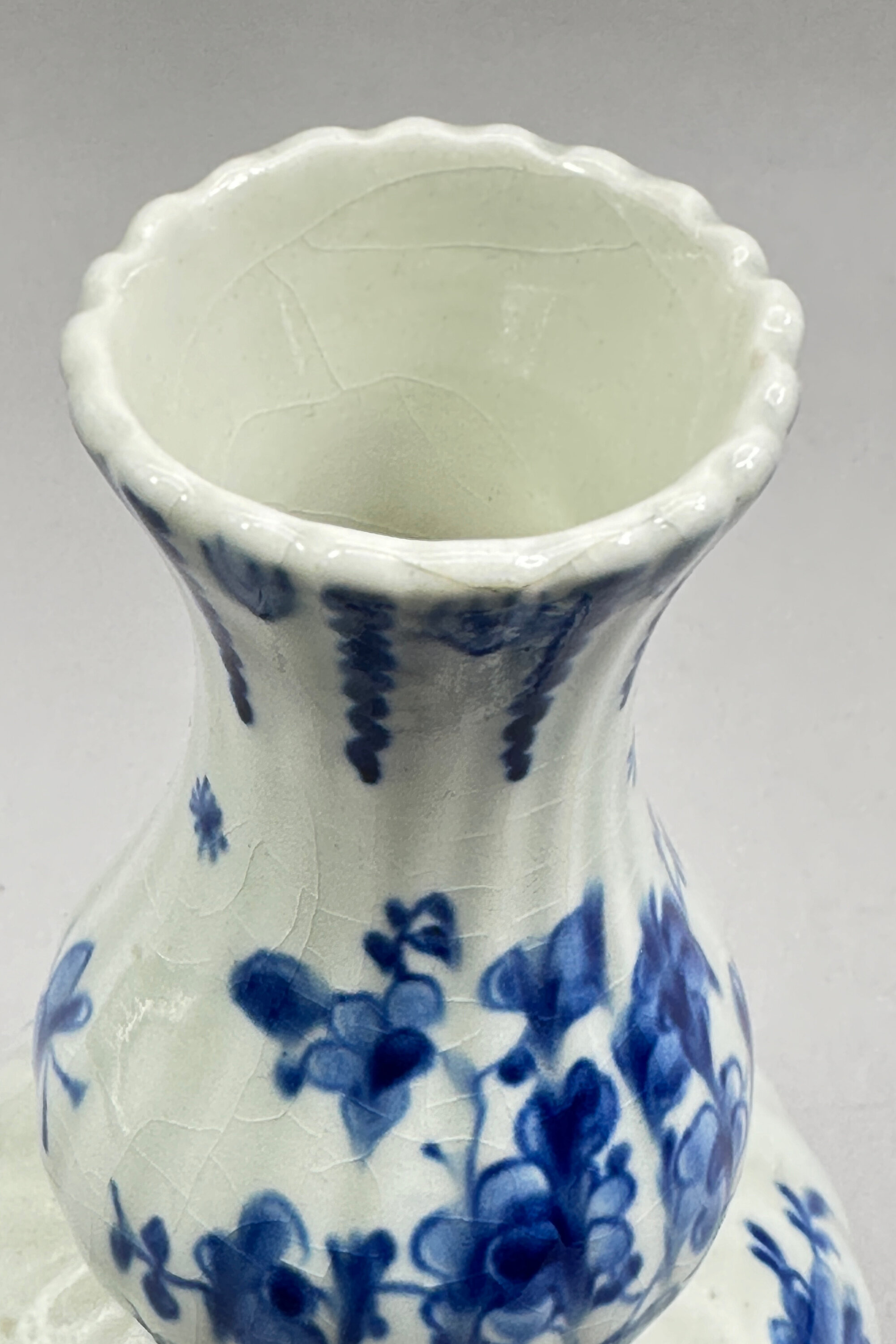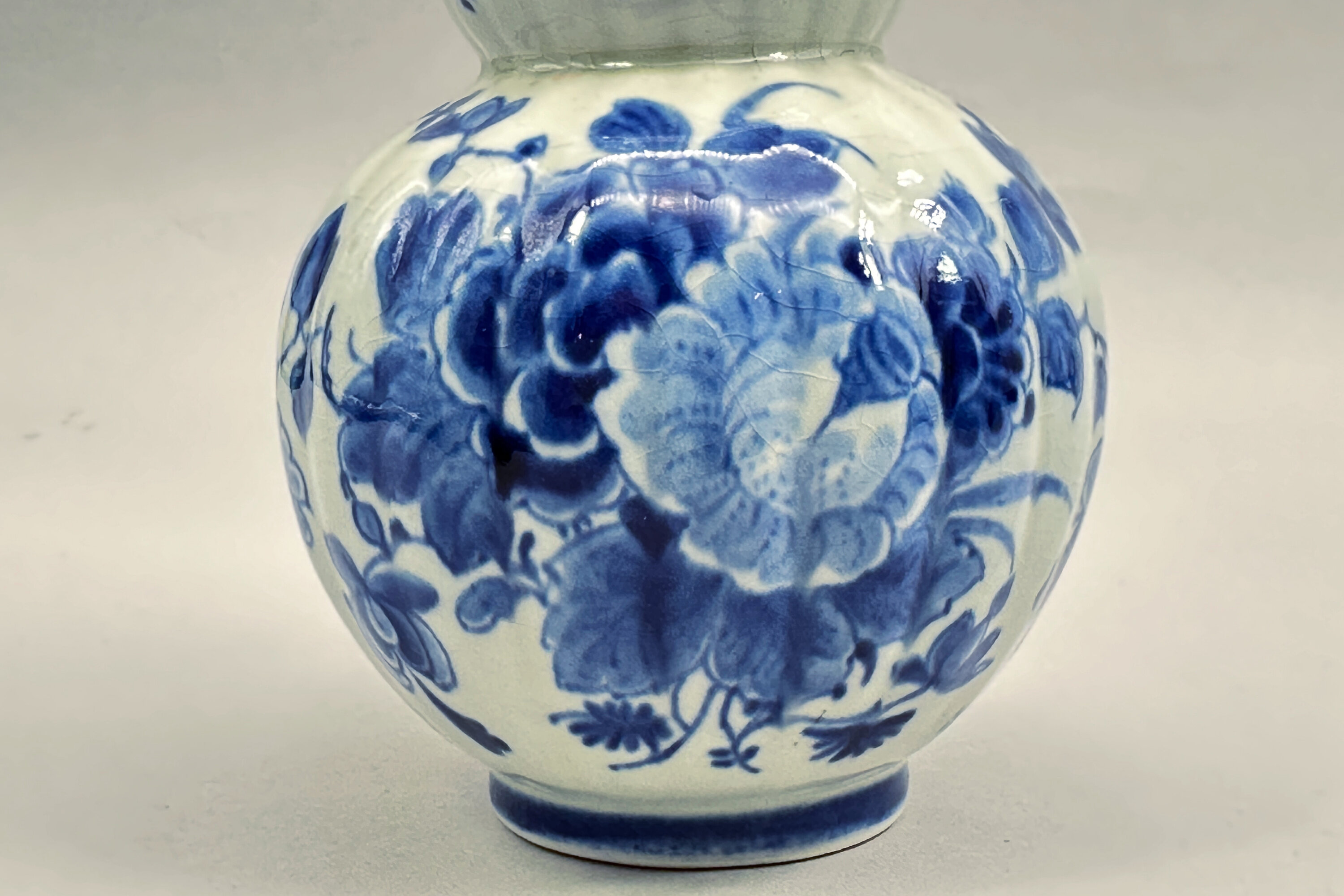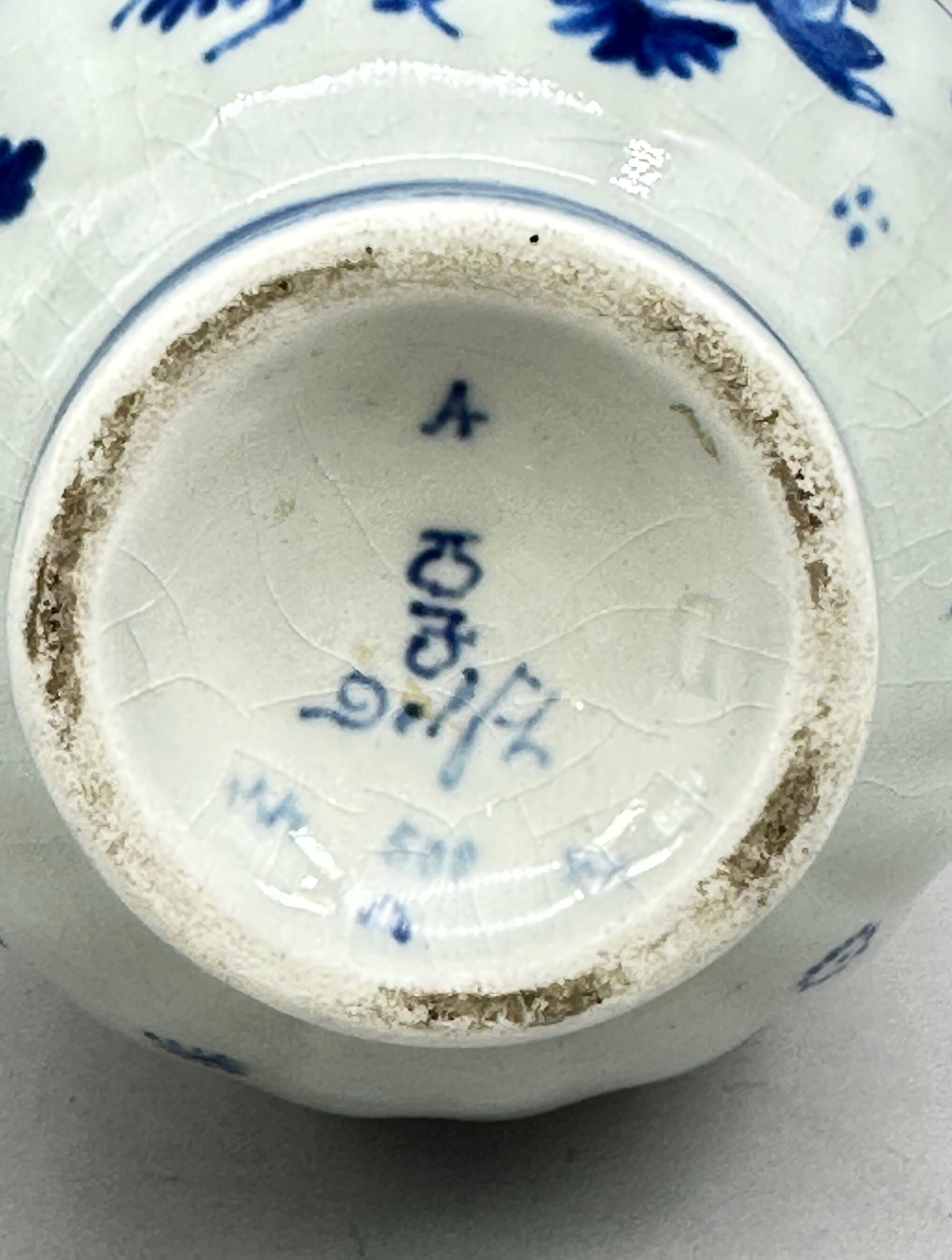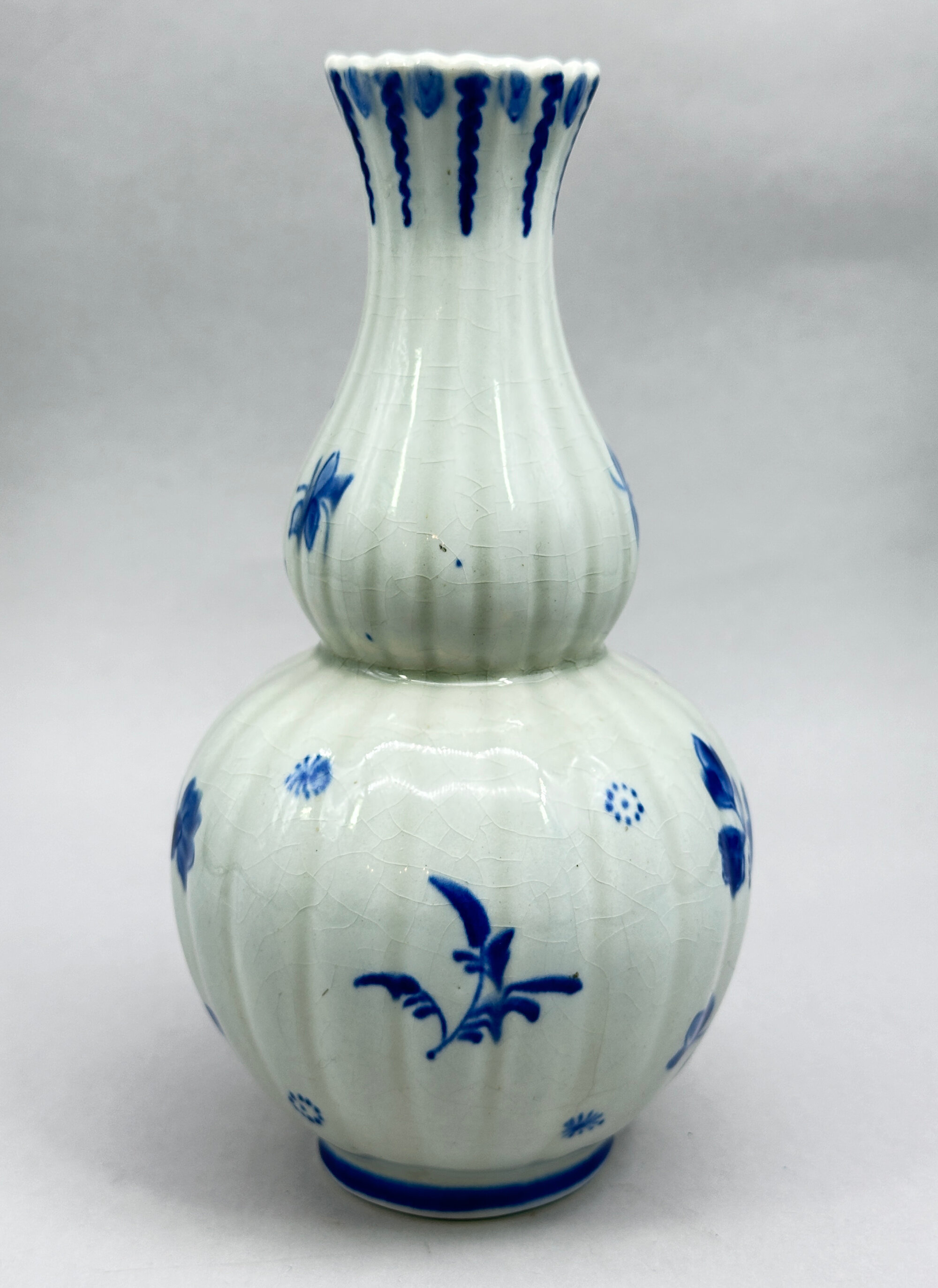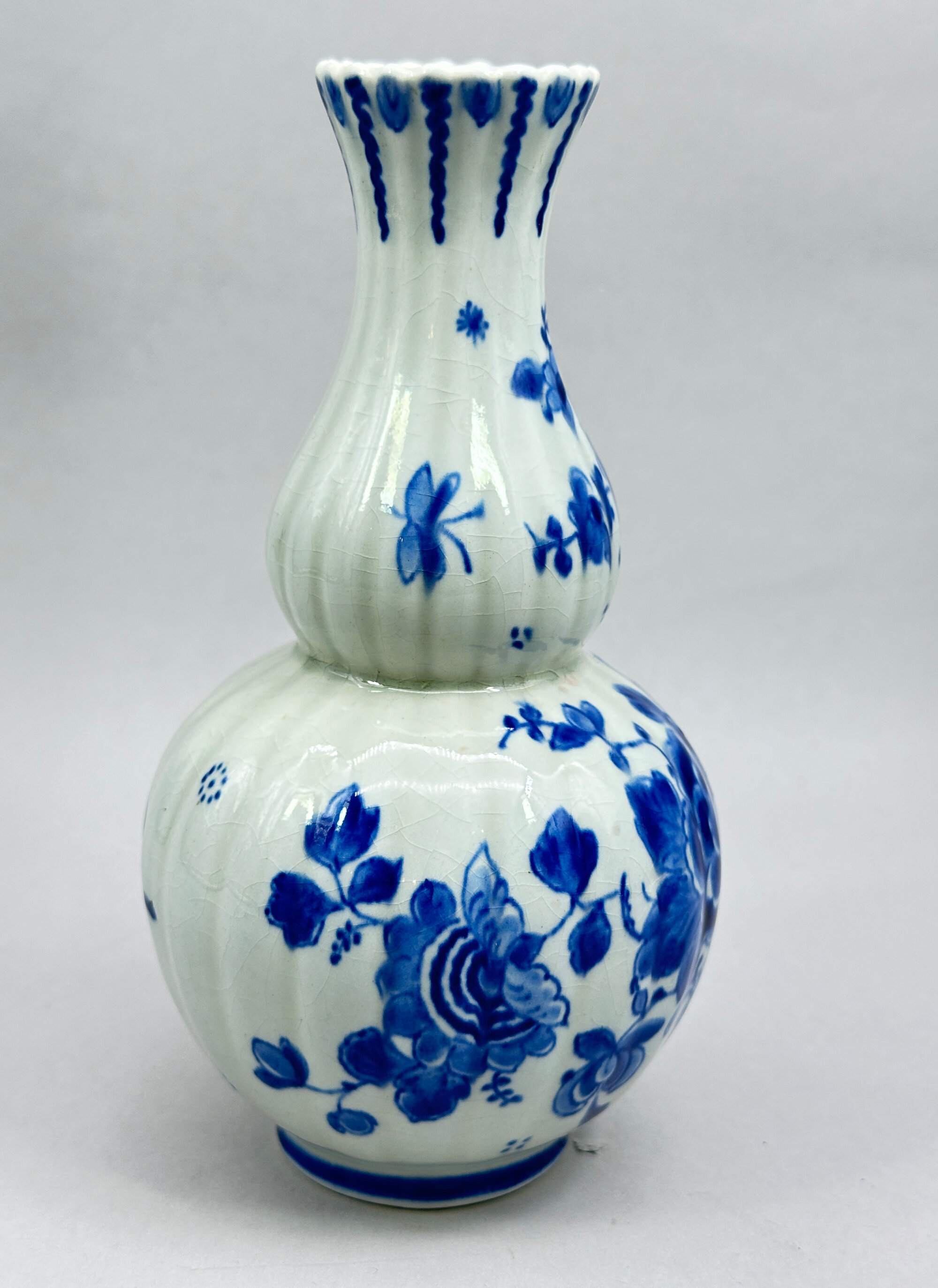Dutch Delft Blue and White Gourd Vase in C18th Style, late C20th
| Current Bid: | £15.00 |
| Bid Increment: | £1.00 |
| Next Min Bid: | £16.00 |
| Buyer’s Premium: | £3.60 |
| Total Amount: | £18.60 |
| Number of Bids: | 4 |
| Location: | United Kingdom |
| Highest Bidder: | User 1412 |
| Auction Start: | 24/04/24 10:03:00 UTC |
| Auction Ending: | 08/05/24 19:30:00 UTC |
| Auction Finished : | 08/05/24 19:30:01 UTC |
Dutch Delft Blue and White Gourd Vase in C18th Style, late C20th
A ceramic vase of double gourd form with a short foot and a flaring rim, the fluted body decorated in underglaze blue with flowering peony and flowers in a chinoiserie style, the base with underglaze blue marks including the symbols for Delft ware and the name Delft itself. The tin glazed earthenware pieces, mostly blue and white, produced at Delft in Holland are a familiar staple of the ceramics repertoire. Production began as early as the sixteenth century but the most famous era of output was between the mid seventeenth and eighteenth although pieces continued to be manufactured after that, both in the nineteenth and twentieth centuries, usually copying the forms and designs of the earlier wares but no longer employing the tin glaze of the earlier pieces which proved to be too expensive.This vase is typical of one of these later creations and copies an eighteenth century original which itself was based on Chinese pieces. The marks underneath, although some of them are blurred, offer a clue to the dating. Below an ‘A’ at the top can be seen a vase which stands for ‘De Porcelyne Fles (The Porcelain Bottle) a factory which was established in 1653 and continues production today. There follow the initials ‘JT’ as a monogram standing for Joost Thooft who bought the factory in 1876 and below this ‘Delft’. At the bottom are usually found the painter’s initials to the left and letters to the right which are the date mark. On this vase these are unclear but the painter’s initials read ‘MA’ which appears to stand for M.H.van Aalst who worked for the firm from 1941to 1983. This would fit with a likely dating here to the second half of the twentieth century, but the artist has successfully recreated the work of his predecessors and produced a piece of great charm.
| Size: | Ht 17cm Width (max) 9cm Base 5cm |
| Weight: | 280gm |
| Date: | Second half C20th |
| Condition: | Very good condition; the glaze with typical craquelure effect |
| Estimate: | £20 – 30 |
